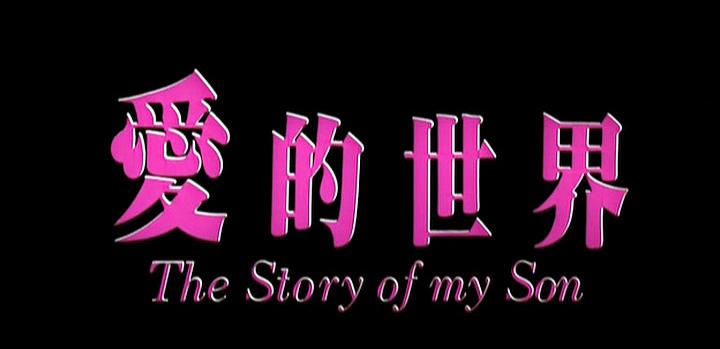Speaking of Du Qifeng, it is inseparable from the galactic image he founded, as well as the exquisite composition and cool actor position in his films, such as his classic films such as "Dark War", "Gunfire", "Banishment", etc., they are more like an installation art, and Du Qifeng is also going farther and farther on this road.
In contrast to these extremely stylized works he created at Galaxy Image, his previous works are more likely to embody a raw, unadorned rugged beauty, like his Barefoot Boy and The World of Love. The two films were directed by him when Shaw and TVB co-formed Met Pictures.

Today we will talk about "The World of Love", the film starred by Liu Songren, the protagonist Li Ziliang, who played him, was in debt in order to treat his wife, but his wife still died and left two sons. Li Ziliang could not afford the cost of living and borrowed usurious loans, which eventually led to an irreparable tragedy.
Liu Songren came from Hong Kong's Leigh TV artist training class, once worked as an actor in the three major TV companies Li, ATV and Wireless, and later he went to Taiwan to develop, plus his Chinese is also good, so we sometimes mistakenly think that he is a Taiwanese actor.
Liu Songren plays a humble gentleman on the screen or screen, and he is elegant, humble and affectionate on the screen. The vigorous love story between him and Wang Mingquan in "Jinghua Spring Dream", his lingering pity with Michelle in "Ping Tracer Video", his bumpy life in "Spring to Spring and Back" and the love-hate entanglement with Xia Wenxi, these have all been our most beautiful screen memories.
The film "The World of Love" is almost his one-man show, and one person completely supports a film. In order to repay the debt, he embezzled public funds to gamble on horses at the instigation of his colleagues, and the bet was lost, so he had to borrow usurious loans to make up for the deficit. His eldest son is very sensible, in order to share his father's worries, he does not go to school to make dragon sets in the studio, and also helps his father with his brother to do housework.
In order to pay off the debt, he sold the house and car and rented a small house for father and son to live in. Yet the money-shark thugs found them, painting the walls of the corridors with paint and threatening words. Li Ziliang was beaten by the loan sharks and shaved his yin and yang head.
In this case, the child's grandfather wants to take the two children away, but Li Ziliang does not want to separate the father and son. Grandpa is played by "one lamp master" Liu Zhaoming, a stubborn old man, who has always disliked this son-in-law.
Considering the future of the child, Li Ziliang let the child and his grandfather go. The old man saw that their father and son were inseparable, did not want to break them up, and gave them a sum of money to let the children continue to stay by Li Ziliang's side.
While their wives were alive, their relationship was very good, and the children often watched videotapes of their mothers, and the father and son were dependent on each other. The film's incomparable tear-jerking, strong father-son love, and Li Ziliang's deep love for his deceased wife are all deeply infected by the audience.
The sense of fatalism in Du Qifeng's later films is actually reflected in his middle and early works, such as Guan Feng's soul flying in "Barefoot Kid", and the tragic ending of Li Ziliang's family in this film. This theme has been carried throughout his work line and has become an attribute of his films.
Li Ziliang did not think that the loan shark company would roll profits, and if he wanted him to pay more, he could not tolerate it, and he had a big fight with the other party and ran away with the money. He decides to leave with the child, but the eldest son is delayed in retrieving his father's watch, only to be caught by the loan shark and finally thrown out of the car...
The warmth and turning point of the film give the audience a hope, and then Du Qifeng ruthlessly crushes this hope, forcing Li Ziliang to a dead end step by step, presenting the most cruel side to the audience, and using the bloody reality to shock the audience's soul without mercy.
Du Qifeng's films in that period were relatively commercial, the story of this film was more cheesy, and it was not difficult to guess every twist. However, the film wins in a very delicate portrayal of the sincere emotions between their father and son, although the film has a sensational component, but it is still tearful after watching, and the most simple emotions in the world are the most moving.
Pay attention to the cry beans and take you into the wonderful world of movies.